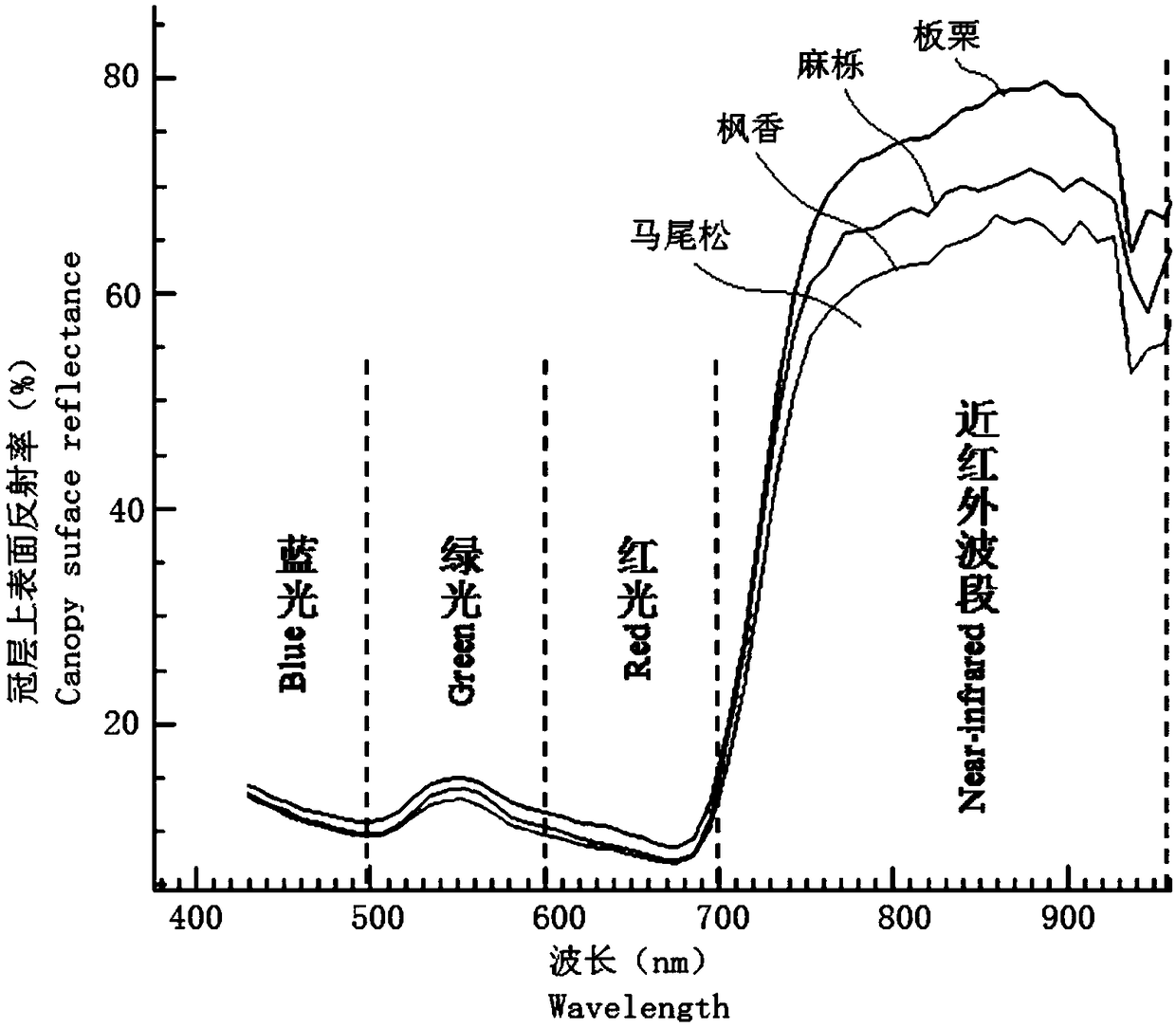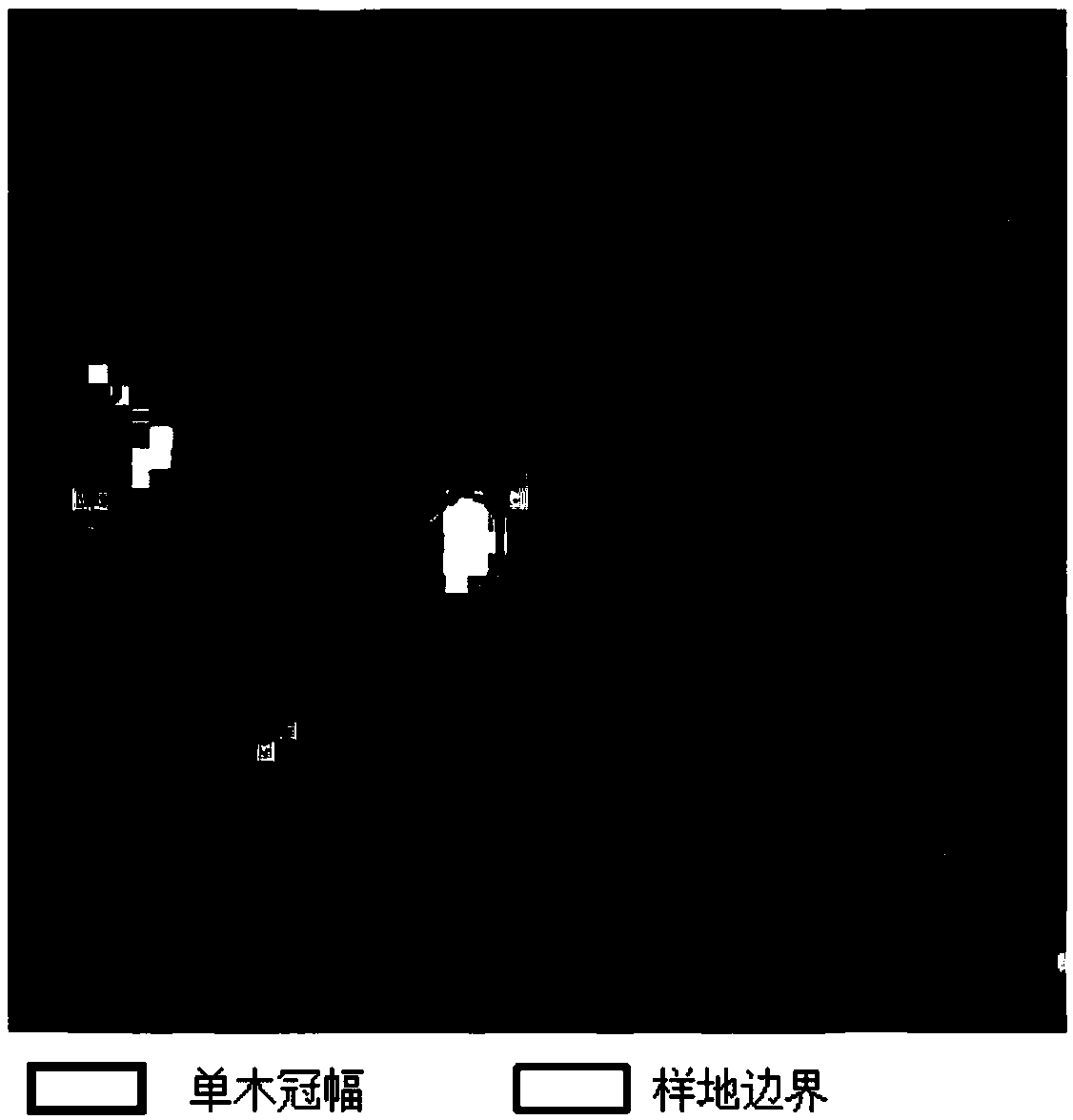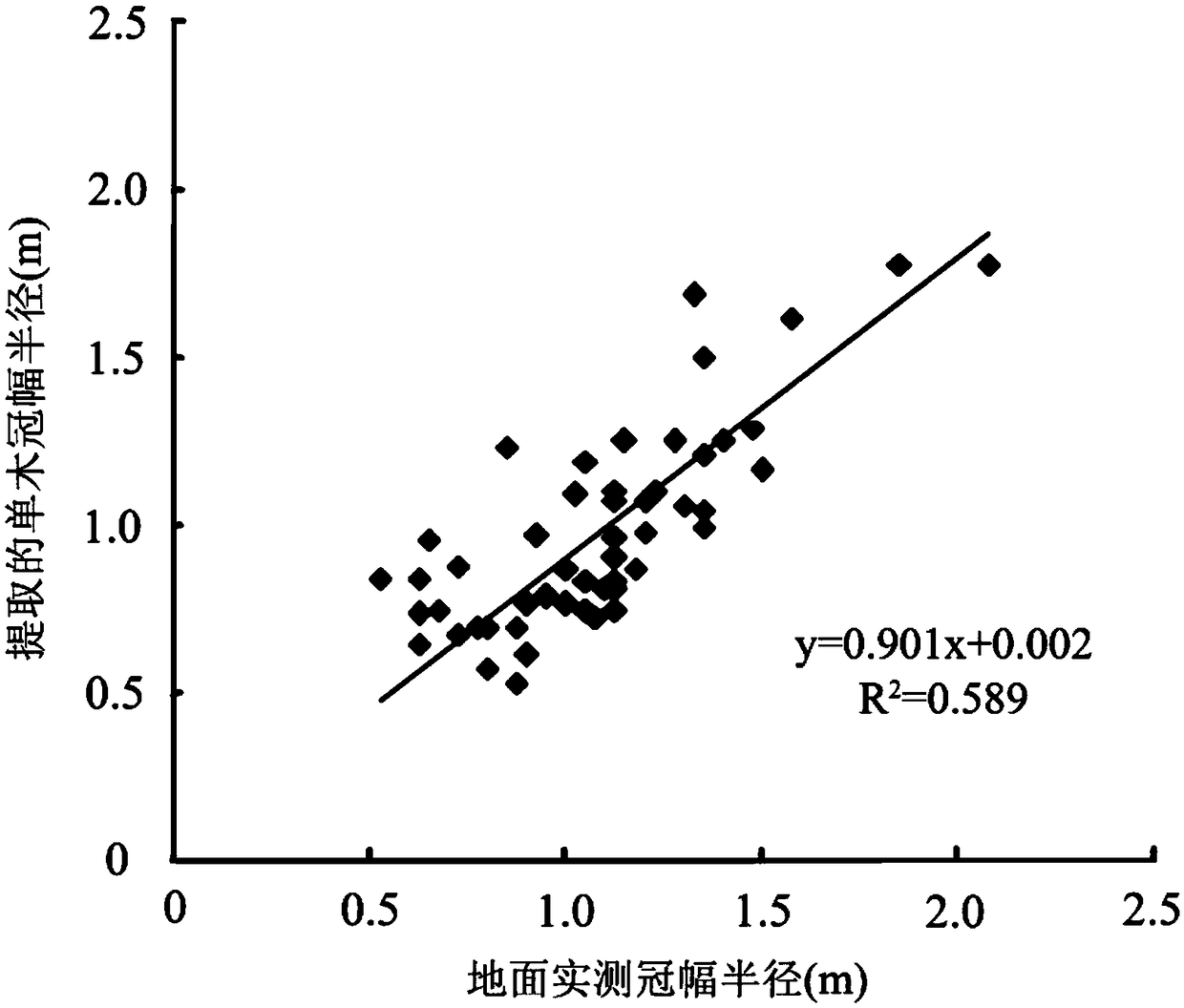A Tree Species Classification Method Based on Multi-source Simultaneous High Resolution Remote Sensing Data
A high-resolution, remote sensing data technology, applied in instrumentation, computing, character and pattern recognition, etc., can solve the problems of refined tree species classification level and classification accuracy can not meet the needs of use, to improve classification accuracy, degree of automation and accuracy Enhanced, easy-to-promote results
- Summary
- Abstract
- Description
- Claims
- Application Information
AI Technical Summary
Problems solved by technology
Method used
Image
Examples
Embodiment 1
[0038] Overview of the test area
[0039] The research area is selected from the state-run Yushan Forest Farm in Changshu City, Jiangsu Province (120°42′9.4″E, 31°40′4.1″N), with an area of about 1422hm2 , the elevation change range is 2-261m; the study area is located in a subtropical monsoon climate, with an average annual precipitation of 1062.5mm; the forest type belongs to subtropical secondary mixed forest, which can be subdivided into coniferous forest, broad-leaved forest and mixed forest. The main coniferous and broad-leaved deciduous tree species include Pinus massoniana, Quercus acutissima, Liquidambar formosan and Chestnut (Castanea mollissima), etc., and some evergreen broad-leaved tree species are also associated.
[0040] According to the tree species composition, age, and site stratification in Yushan Forest Farm’s forest resources investigation historical data (2012), seven 30m×30m square plots were selected, including three types of forests: coniferous fores...
PUM
 Login to View More
Login to View More Abstract
Description
Claims
Application Information
 Login to View More
Login to View More - R&D Engineer
- R&D Manager
- IP Professional
- Industry Leading Data Capabilities
- Powerful AI technology
- Patent DNA Extraction
Browse by: Latest US Patents, China's latest patents, Technical Efficacy Thesaurus, Application Domain, Technology Topic, Popular Technical Reports.
© 2024 PatSnap. All rights reserved.Legal|Privacy policy|Modern Slavery Act Transparency Statement|Sitemap|About US| Contact US: help@patsnap.com










